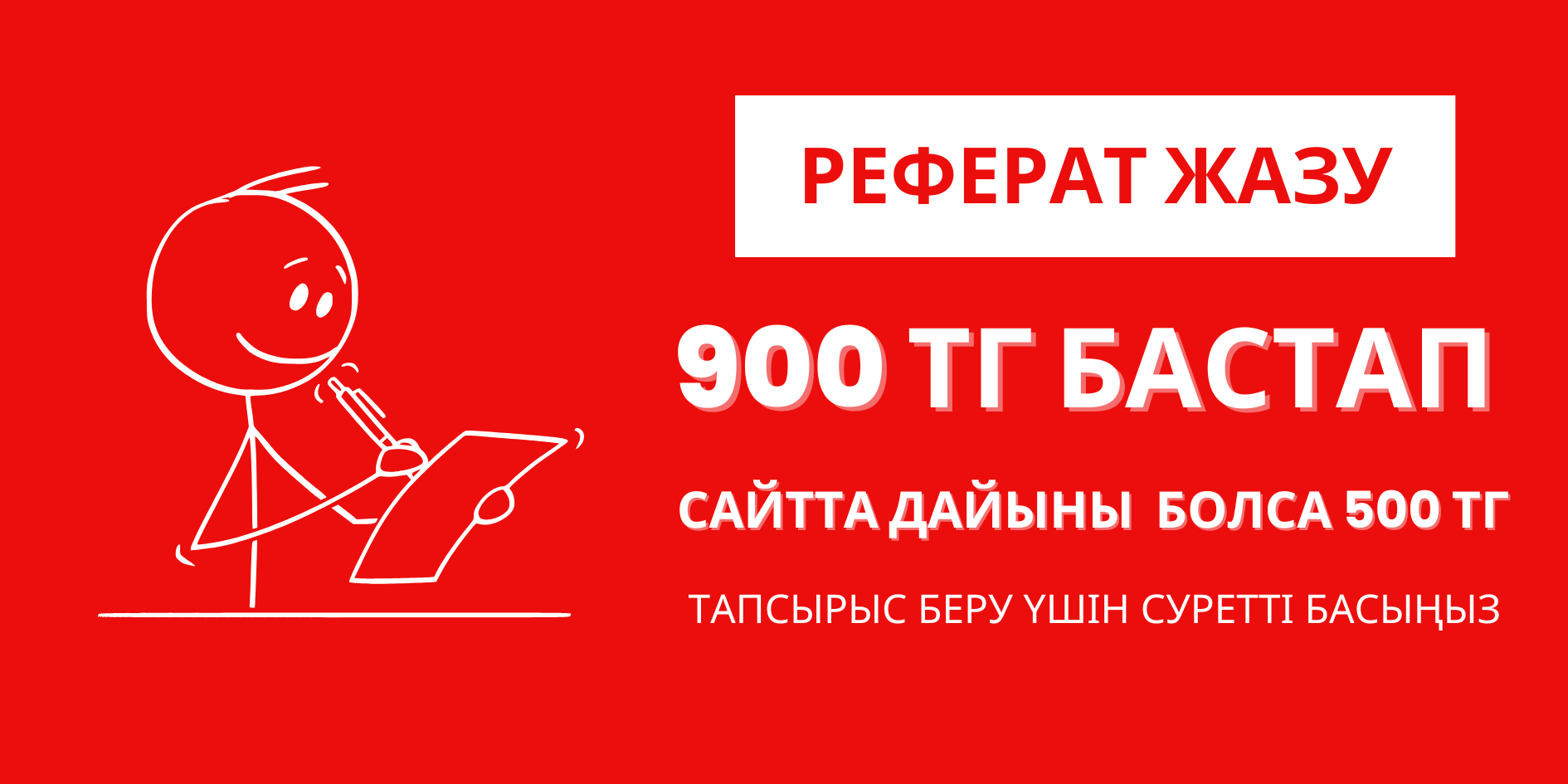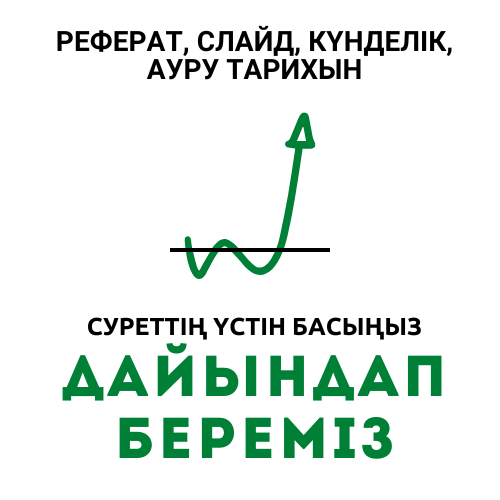Public health is an integral theoretical and applied science, which studies patterns of social and economic factors influence on population health and proves system of government, public and medical events for health protection of citizens.
From this it follows, that public health is necessary to consider from wide social positions, and problems of health preservation and promotion go beyond the competence and responsibility of agencies and health organizations and demand solidary accountability of government, employer and citizen.
All doctors equally, besides the high level of clinical training, must clearly understand governmental objectives and public health goals, as far as they are carriers of all external and internal branch effect.
Consequently, it is necessary to prove holistic and systematic understanding of strategy and tactics of health care system development in the context of Kazakhstani society sustainable development from positions of investment maximization in human capital, and also effective using of available resources for the purpose of high national health level achievement.
2.2. Discipline objective
Forming the future health professionals, who are able to make management decisions, directed at public health improvement and public health system modernization.
2.3 Training goals
- to teach methodology and evaluation techniques and management of public health;
- to teach systemic approach to the public health analysis;
- to form readiness for problem-solving of public health.
2.4 Learning outcomes
Student must know:
- indicators and trends of population health in connection with dynamical social and economic conditions;
- theoretical and methodological basis of health statistic: the basis of demographic statistic, statistic of morbidity, disability and physical development;
- current health state of Kazakhstani population, including levels and structure of population mortality and morbidity;
- Republic of Kazakhstan basic legislation in the field of public healthcare and functioning of public health system;
- bases of organization of primary medical and sanitary, qualified, specialized and highly specialized healthcare;
- bases of organization of sanitary and hygienic and anti-epidemic assistance to the population;
- bases of hygienic education of the population and formation of healthy lifestyle, principles, methods and tools of sanitary-educational work;
- bases of social insurance of citizens, kinds of social guarantees, principles of medical examination of temporary and permanent disability;
- bases of economy and economic relations in healthcare;
- bases of management in healthcare, manager’s role in providing of the medical organization functioning;
- bases of entrepreneurial activity in healthcare, business and marketing in this system;
- principles of healthcare quality management: control, analysis and assessment of healthcare quality;
- accounting and reporting system in agencies and health organizations.
Student must be able to:
- to count and estimate the indicators of population health state in connection with social and economic conditions;
- to detect main cause-effect relationships, estimate direction and the impact of factors on health;
- to apply medical and sanitary methods of public health studying;
- to develop offers for eliminating the influence of unfavorable factors and promotion of public health;
- to carry out organizational and methodological work in health organization, produce reports and reviews of activity of medical organizations and its workers;
- to calculate economic efficiency and damage from morbidity, mortality, cost and the total cost of medical services;
- to analyze and estimate activity of treatment-prophylactic and sanitary-anti-epidemic health organizations;
- to control quality of healthcare;
- to do sanitary-educational work among the population, assist in formation of healthy lifestyle;
- to own computer technologies in analysis and estimation of health state and activity of agencies and health organizations;
- to use scientific, educational, regulatory and reference literature for solving professional
2.5 Prerequisites
Informatics, ecology, bases of the rights, bases of the economic theory, biostatistics.
2.6 Postrequisites
Bases of the evidence-based medicine, internal diseases, surgery, obstetrics and gynecology, childhood diseases, general medicine practice.
Discipline hours distribution
| Total of hours | Classroom hours | SIW | FORM OF CONTROL | |
| Lectures | Practical training | |||
| 108 | 18 | 54 | 36 | Exam |
2.7 The thematic plans of lectures, practical trainings, SIW
2.7.1. The thematic plan of lectures оf “Public health” discipline
| № | The names of themes | Conducting form | Duration |
| 1 | Public health as a science and teaching subject | Review lecture | 1 |
| 2 | Social factors of health | Review lecture | 1 |
| 3 | Medical and social aspects of demography | Review lecture | 1 |
| 4 | Morbidity of population and methods of studying | Review lecture | 1 |
| 5 | Medical and social aspects of priority classes of diseases | Review lecture | 1 |
| 6 | Complex estimation of population health | Review lecture | 1 |
| 7 | Diseases prevention and formation of healthy lifestyle | Review lecture | 1 |
| 8 | Organizational-legal bases of public health | Review lecture | 1 |
| 9 | Principles of organization of treatment-prophylactic assistance to the population | Review lecture | 1 |
| 10 | Organization of treatment-prophylactic assistance to the rural population | Review lecture | 1 |
| 11 | Health care organization to the urban population | Review lecture | 1 |
| 12 | Motherhood and childhood protection | Review lecture | 1 |
| 13 | Economics in healthcare | Review lecture | 1 |
| 14 | Planning and financing of healthcare | Review lecture | 1 |
| 15 | Healthcare in market conditions | Review lecture | 1 |
| 16 | Management in healthcare | Review lecture | 1 |
| 17 | Quality assurance of medical services | Review lecture | 1 |
| 18 | Priorities of healthcare reforming and development in Kazakhstan | Review lecture | 1 |
| Total hours: 18 | |||
2.7.2.The thematic plan of practical trainings of “Public health” discipline
| № | The names of themes | Conducting form | Duration |
| 1 | Introduction in public health. Methodology of public health studying | seminar | 2 |
| 2 | Medical and social aspects of demography | seminar | 4 |
| 3 | Reproductive health. Morbidity of the population | seminar | 3 |
| 4 | Complex estimation of population health. Medical-statistical documentation | seminar | 3 |
| Knowledge control | colloquium | 1 | |
| 5 | Alma-Ata declaration – great charter of public health of the XX-th century. Diseases prevention and formation healthy lifestyle. Organizational-legal bases of public health | seminar | 2 |
| 6 | Principles of organization of treatment-prophylactic assistance to the population. Organization of outpatient assistance to the urban population | seminar | 3 |
| 7 | Organization of hospital assistance to the urban population. Organization of obstetric-gynecological assistance | seminar | 6 |
| 8 | Organization of treatment-prophylactic assistance to the children. Organization of medical assistance to the rural population | seminar | 6 |
| Knowledge control. | colloquium | 1 | |
| 9 | Analysis of activity of health care organizations. Organization of work capacity examination in healthcare organizations. Planning in healthcare | seminar | 5 |
| 10 | Financing of health care. Economics in healthcare. Economical analysis of activity of healthcare organizations | seminar | 6 |
| Knowledge control | colloquium | 1 | |
| 11 | Management in health care. Marketing in healthcare. Entrepreneurship in healthcare | seminar | 5 |
| 12 | Control of quality in healthcare. Standardization in healthcare. Licensing and accreditation of medical activity | seminar | 4 |
| Knowledge control | colloquium | 1 | |
| Total consultation | 1 | ||
| Total hours: 54 | |||
2.7.3. The thematic plan of SIW of “Public health” discipline
| № | The names of themes | Conducting form | Duration |
| 1 | Quality of life associated with health | The abstract, presentation, summary, questionnaire, crossword, glossary | 2 |
| 2 | Valueological health aspects | The abstract, presentation, summary, crossword, glossary | 2 |
| 3 | Theories of medicine and healthcare | The abstract, presentation, summary, crossword, glossary | 2 |
| 4 | Analysis of natural migration of the population | The abstract, presentation, summary, table, graph, crossword, glossary | 2 |
| 5 | Reproductive health and behavior | The abstract, presentation, summary, crossword, glossary (test), table | 2 |
| 6 | Individual and consolidated morbidity account | The abstract, presentation, summary | 2 |
| 7 | Family health. Children health | The abstract, presentation, summary, table | 2 |
| 8 | Health of older generation | The abstract, presentation, summary, questionnaire, crossword, glossary | 2 |
| 9 | Ethical medicine problems associated with public health | The abstract, presentation, summary, crossword, test, glossary | 2 |
| 10 | Health issue in the annual messages of Republic of Kazakhstan president | The abstract, presentation, summary | 2 |
| 11 | Objectives of millennium development for Kazakhstan | The abstract, presentation, summary, crossword, glossary | 2 |
| 12 | Code of RK “About health of the nation and healthcare system” | The abstract, presentation, summary, crossword, test, glossary | 2 |
| 13 | “Governmental program of healthcare reforming and development in RKfor2005-2010 years” | The abstract, presentation, summary, glossary | 2 |
| 14 | Specialized and highly specialized medical assistance | The abstract, presentation, summary, crossword, test, glossary | 2 |
| 15 | Medical insurance | The abstract, presentation, summary, crossword, test, glossary | 2 |
| 16 | Business-planning in health care | The abstract, presentation, summary, crossword, test, glossary | 2 |
| 17 | Foreign healthcare | The abstract, presentation, summary, crossword, test, glossary | 2 |
| 18 | Information technologies in healthcare | The abstract, presentation, summary, crossword, test, glossary | 2 |
| Total hours: | 36 | ||


